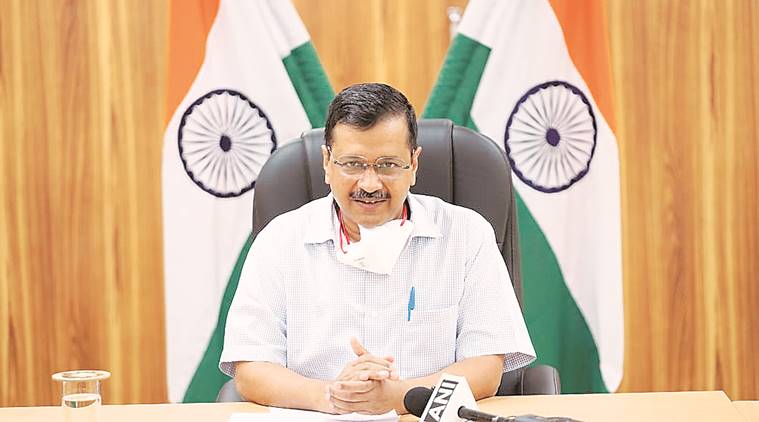 According to senior officials, patients who have received convalescent plasma (CP), which is extracted from those who have recovered from Covid, showed improvement in respiratory rates and oxygen saturation levels.
According to senior officials, patients who have received convalescent plasma (CP), which is extracted from those who have recovered from Covid, showed improvement in respiratory rates and oxygen saturation levels.
With Delhi’s Covid count reaching 85,161, Chief Minister Arvind Kejriwal said Monday that his government will start a plasma bank within the next two days at the Institute of Liver and Biliary Sciences (ILBS).
Describing the decision as “a first-of-its-kind initiative”, Kejriwal appealed to those who have recovered from Covid-19 to donate plasma at the Institute. So far, 56,235 patients have been listed in Delhi under the “recovered/discharged/migrated” category.
According to senior officials, patients who have received convalescent plasma (CP), which is extracted from those who have recovered from Covid, showed improvement in respiratory rates and oxygen saturation levels.
Although the therapy is still in trial phase, Delhi was among the first to consider this line of treatment after clearance from the Indian Council of Medical Research (ICMR).
“The oxygen saturation level in a healthy individual should be 95 per cent, and anything below that is considered dangerous. Secondly, ideal respiration rate should be 15 (breaths per minute), but due to corona, it may go up to 20, 25, and in some cases, cross 30,” said Kejriwal.
“CP was administered to those whose respiratory rate had soared to 35.36 breaths per minute. Post administering plasma, the respiratory rate improved substantially with a drop of 8.22 in the first 48 hours and 14.92 in seven days… CP was administered on patients whose oxygen saturation level was 85 per cent and an improvement of 6.61 per cent was seen within 48 hours, and 9.92 per cent in seven days,” according to details provided by the state government.
An official said the results “are better” when measured against those who received fresh frozen plasma (FFP) from donors who weren’t infected by coronavirus. “The plasma of recovered patients carry antibodies that the body creates to ward off the virus,” the official said.
Kejriwal, however, cautioned that the therapy may not be effective on critical patients. “It is extremely difficult to save the patient who is in the last stage of infection, suffering from multi-organ failures and extreme co-morbidities. But it is helpful for patients with moderate symptoms, mainly those whose condition is not serious yet,” he said.
The Chief Minister said the decision to open the plasma bank, along the lines of a blood bank, has been taken in light of the high demand for plasma and low supply. “I am getting calls from people asking for plasma trials for their relatives and family members who are in hospitals. Around two months ago, Delhi was one of the first states to start plasma therapy trials. In the first phase, we conducted trials on 29 patients, and you may remember that the results were very positive,” he said.
Kejriwal said the state will start dedicated helplines for those willing to donate plasma: “Once we get a request, all assistance, including vehicles, will be extended. At Lok Nayak Hospital, over the last few days, 34 out of 35 people administered plasma therapy have recovered. At one private hospital, 46 out of 49 recovered.”
According to officials, any “active” corona patient undergoing treatment in private and government hospitals will be able to avail plasma from the bank. “(But) the doctor has to recommend plasma therapy and it cannot be randomly sought by any patient. After a recommendation, the hospital or doctor has to inform ILBS,” said Kejriwal.
The Chief Minister also pointed to “some misconceptions” among potential donors. “They feel that if they go to a Covid hospital to donate plasma, they might get infected again. This is not true… We have made arrangements in ILBS, which is not a corona hospital. The government will also pay for conveyance… the procedure takes around 30-45 minutes,” he said.
Meanwhile, the National Blood Transfusion Council revised its guidelines Monday and said blood can be collected from Covid patients only 28 days after they have been discharged from hospital or completed home isolation.